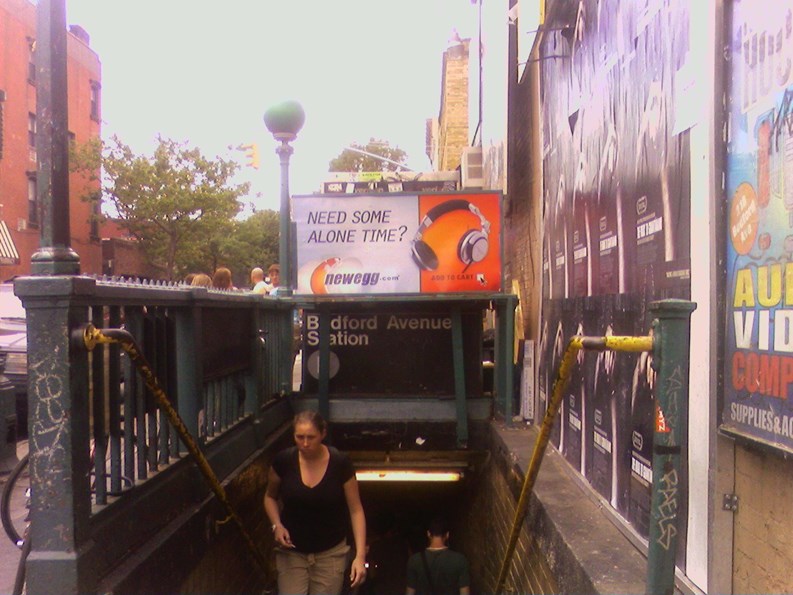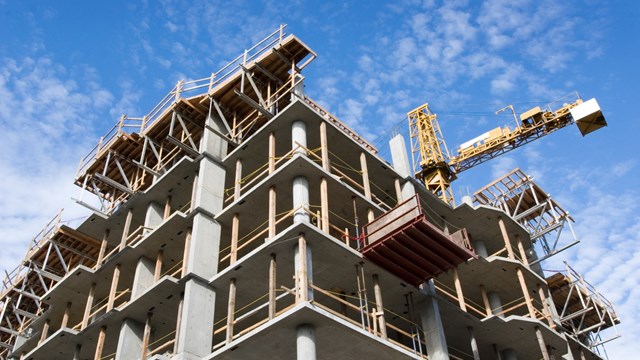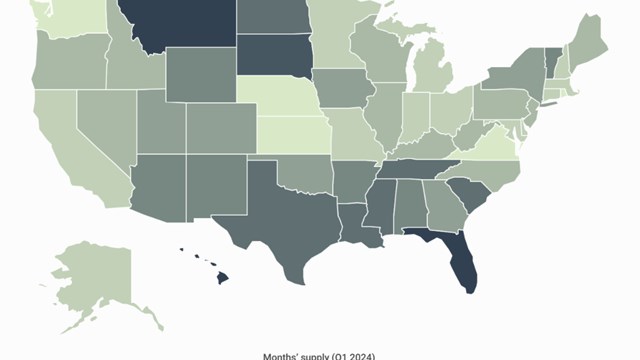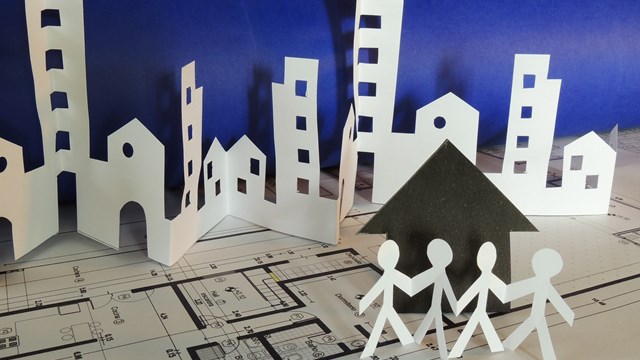Second of a two-part series; read part one here.
To the major relief of commuters who normally travel between Brooklyn and Manhattan via the L subway, a potential nightmare was averted when Gov. Andrew Cuomo surprisingly earlier this month halted a planned full shutdown of the line. Originally scheduled for April 27 of this year, the shutdown was necessary in order to repair the damaged Canarsie Tunnel. Instead, rehabilitation work for the tunnel will now take place on evenings and weekends, and involve an alternative way of mounting cables (the MTA board will have to approve the new plan).
As widely reported in the media when it was first announced in 2016, the impending closure of the L line also impacted the residential real estate market in North Brooklyn, including trendy and popular Williamsburg. Some Brooklyn residents who lived near the line actually moved out because of their concern at how their commute would be affected by the rehab work,
But those who opted to stay or considered moving to North Brooklyn were gifted with deals. According to a StreetEasy report from August of last year , landlords in Williamsburg listed their apartments at lower prices in an effort to attract tenants: “Almost half, or 48 percent, of apartments in Williamsburg that were previously listed on StreetEasy are now renting for lower prices than two years ago, with an average reduction of $250. Before the shutdown announcement, fewer than one quarter of Williamsburg apartments were listed at a lower price than when they previously came on the market.” Meanwhile, those tenants who signed leases for North Brooklyn apartments in 2018 truly benefited from the pre-shutdown hype: the New York Post reported they saved an approximate total of $26.5 million.
It wasn't only just renters who scored deals in North Brooklyn; so did some apartment buyers in the months leading up to April 27, 2019 deadline. According to StreetEasy, following the first announcement of the shutdown in 2016, home prices dropped in North Brooklyn: “Canny New York buyers took advantage of the potential deals spurred by the L train announcement and swooped in to buy properties in North Brooklyn at whatever price point they could afford...the L Train shutdown lit a fire under the North Brooklyn sales market by temporarily offering relative bargains.”
“It's a negotiating tactic for buyers,” Michael Salvatico, a vice president at Marcus & Millichap, had earlier said of the planned shutdown before Cuomo's decision was announced. “But I think people realize that these neighborhoods, especially like North Williamsburg, they're here to stay. So if you're buying a condo or co-op, most people aren't buying it to flip it and make a quick profit. Most people are buying it to live in or in or as a long-term investment. I think people know that the neighborhood is going to be much more profitable than 18 months of the L train shutdown.”
Meanwhile, the effect of Cuomo's reversal won't be immediately felt yet in terms of residential real estate sales and prices returning back to normal, according to Jessica Peters, an agent for Douglas Elliman. “It’s one of the factors that will help stabilize the market,” she says. “However, there are several other economic factors that are causing a lull in the market. The cancellation of the L train closure will certainly have a positive impact, but not as drastically as one might assume. Buyers will not all of a sudden be willing to pay 10 to 20 percent above current asking prices. It will take time for the price per square foot to revert to pre-L train closure pricing.”
From the perspective of sellers, Gary Malin, President of Citi Habitats, says that people are now going to make the necessary adjustments in terms of pricing. “You have to look at the broader market because there are factors going on that need to be considered when pricing your apartment. I'm sure those people are going to now try to reverse those trends and get the value that they think that it's worth. The market has been going through its issues as everyone's fully aware over the last year or so. Once again, the L train discount factor is certainly something people are going to want to reverse if they can, for sure.”
Garrett Derderian of Stribling and Associates said that prior to Cuomo's announcement, prices in North Brooklyn declined at a higher rate than the rest of the borough in the fourth quarter 2018. “We anticipate," he explains, “should the plan move forward as announced by Cuomo, that real estate prices in North Brooklyn should see a rebound, falling more in line with prices and discounts in nearby Northwest Brooklyn. However, even with the announcement, we do not foresee North Brooklyn becoming a sellers’ market.”
One thing that most of the real estate professionals interviewed here agree is that it's still a buyer's market out there. “It is a buyer's market in every segment and neighborhood and that will stay the same for Williamsburg,” says Warner Lewis of Halstead “However, the announcement absolutely changes the dynamic as now more buyers will be drawn to Williamsburg which will at a minimum help with velocity of sales and most likely set the basement for pricing for deals signed or closed before [Cuomo’s reversal].”
“It’s currently a buyer’s market – with or without the L train going down,” Peters adds. “The news will help stabilize the Williamsburg market and make the area a viable option for buyers who need a reliable train for commuting. However, there are several other factors (government shutdown, trade war, stock market, etc.) that will determine how quickly the neighborhood will recover.”
According to a recent report by Stribling, the suspension of the full shutdown could “push more buyers back into parts of the borough that would have otherwise been negatively affected.” Derderian adds that as inventory continues to increase, buyers have many options to choose from and sellers will still need to price to the market. “Across the board, we view the current market as a prime buying opportunity. As sales prices have decreased and we have entered a buyers’ market, an opportunity now exists to pick up assets as relatively discounted prices, compared to where the market has been over the past several years. While current owners may have to sell low, they also have the option to trade up and buy low.”
Regardless of the L shutdown plan and its aftermath, Lewis says that it still a good time to buy in Williamsburg and North Brooklyn, saying that the neighborhood is going to surge more than the rest of New York City market when it becomes a seller's market. “So many positive things have come to the neighborhood and have been suppressed by the L train news: North Williamsburg Park, Domino Park, truly unbelievable restaurants (Lilia, Misi, Llama Inn, Aska, and then list goes on and on), boutique hotels, Whole Foods, Trader Joe’s, etc.”
Malin also echoes that sentiment, adding that one can't get caught up in market cycles. “There's periods of time when all you see is the rapid appreciation, and then there's other times you see some decline,” he says. “In the end as a person buying a home versus an investor, you look at two different things. If you're buying a home for your personal use and you plan on living there for an extended period of time, and you get the joy out of living in the neighborhood, you're going to do whatever it is that is important to you. I think to solely view it just as an investment sometimes create a situation where people miss good opportunities for themselves, whereas the investor makes a whole different story. They're buying something because they believe that there's been a price adjustment, they believe that price adjustment is in their favor. They believe over time it's going to correct itself and appreciate. So I think in the end it's a good time buy real estate in the city.”
Read part one of this story here.
David Chiu is an associate editor at The Cooperator.







Leave a Comment